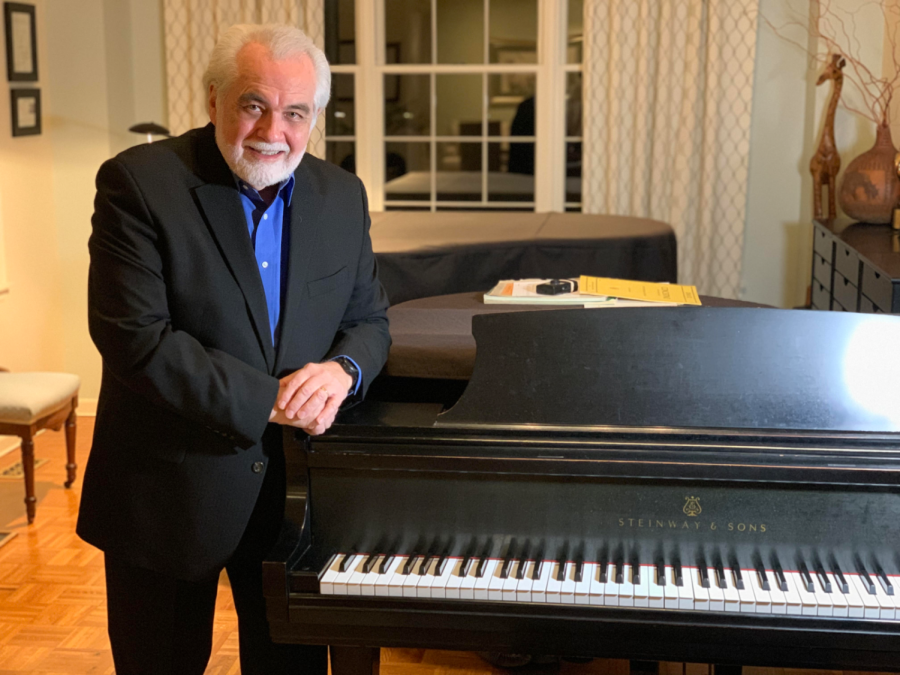Interview With Discovery Orchestra Conductor George Marriner Maull: A Four-and-a-Half Year Old Fell In Love With a Symphony Recording. Seventy Years Later, He Hasn’t Changed.
May 14, 2023
At age 75, George Marriner Maull still gets lost in thoughts and daydreams.
His unwillingness to root himself to a monotonous life without passion began as a feisty toddler sitting on the floor listening to a creaky Symphony recording. The flame was sparked by his mother, a pianist, and led Maull to form the Discovery Orchestra, a professional orchestra in New Jersey. He now serves as the orchestra’s Artistic Director and conductor.
The journey wasn’t without difficulty. “Many professional orchestras take in only a third of what giving a concert costs,” Maull says. “Some of our concerts at NJPAC cost more than $100,000 to produce, while television shows can cost up to $500,000! Renting the Art Center for one day – that fee alone is $25,000.”
In the end, however, it all paid off. Maull won Emmy nominations for his shows Bach to the Future, Discover Beethoven’s Fifth, and Discover Vivaldi’s Four Seasons. The Discovery Orchestra helps people discover the true meaning of music through concerts that teach how to listen instead of just hearing.
IQ: How old were you when you first became interested in music?
GM: I was four and a half years old. My mother purchased this 33⅓ RPM vinyl record of the New World Symphony by Dvořák. We sat on the floor and listened to it together. And I was…totally changed by that experience. I divide my life into two parts: before listening to that recording and after, because there was something so pivotable. I was never the same, after being so moved by the sound of a symphony orchestra, even though it was being played on a very lousy piece of equipment.
IQ: To be that affected at such a young age – and have that be the cause for everything that followed – that’s just amazing.
GM: Well, we have to give my mother credit for preparing me for that experience. She brought in string quartet friends to play chamber music. She also had friends in the Philadelphia Opera Company, who would come and sing while she played – not to mention her piano students. I think I was so saturated at that crucial time. In fact, they say the last few months before we’re born, we start to hear. How many times did I sit inside my mother listening to her practice those last two months? I really wonder, because obviously, I had no choice in the matter. I was a passenger on this boat.
IQ: Do any other memories come to you when you think about your early childhood in music?
GM: I liked to lie under the grand piano while my mother practiced. It was very loud and intense. That was a favorite moment of mine from childhood.
IQ: As you grew up, did your mother see your success? If you could talk to her now, what would you say?
GM: I wish I could talk to her now. She was diagnosed with cancer my senior year in high school. She died when I was 18. And so I feel that there’s a little bit of sadness for me. I feel like she never quite got to see me grow up.
We discussed whether I could become a musician, and if I could go to music school. My grandmother wanted me to become a clergyman. The thing was that I wanted to be a musician since I was ten.
I was fighting against myself, but I told my mother, I just really want to do this. And she finally said before she died, well, okay, do it.
If I could talk to her now I think I would say, “I hope you’re happy with what I’ve been able to achieve.”
IQ: You didn’t want to become a clergyman. The only thing you really loved was music?
GM: Correct. To be a musician, it’s like being a minister. It’s a calling. It chooses you. The problem is, it doesn’t always work the way you want it to.
IQ: You often urge audience members to listen instead of hear. What do you mean by that?
GM: Listening means giving your full, undivided attention. First note to the last, and every note in between. If you’re Tchaikovsky, or Rachmaninoff, or Beethoven, you expect that from your audience. Well, some people listen very intently, and others just hear. It goes in one ear and out the other. They don’t really pay attention. They might do other things at the same time. I don’t think that’s a bad thing. But music can be very moving. You can learn all sorts of things if you just listen.

